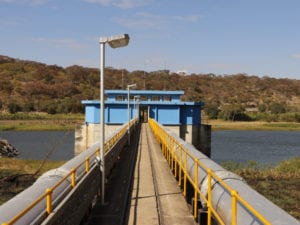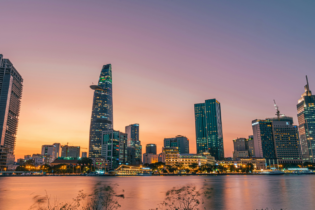A five-year, US$250 million water services expansion project in the Zambian capital of Lusaka involving Mariswe is nearing completion.
The appointment of Mariswe – a South African project management, infrastructure planning and consulting engineering practice – as the construction supervision engineer against strong international competition was significant as a test case for the South African water and sanitation sector. The Lusaka Water Supply, Sanitation and Drainage (LWSSD) project was conceived to provide access to clean and safe water supply and adequate sanitation for more than a million residents of the Zambian capital, as well as improve stormwater drainage infrastructure for the city. Lusaka is a fast-growing city with a population of about 2.5 million, many unplanned settlements and widespread poverty. Inadequate and poorly maintained drainage infrastructure led to extensive flooding during the rainy season. In 2015, some 70% of residents had access to treated water supply and only 30% to waterborne sanitation. Non-revenue water stood at an unacceptable 48% of total water delivered to the distribution network, due to leakage, bursting of old pipes, illegal connections, inadequate metering and vandalism. The solution The LWSSD project was funded by a $355 million grant by the Millennium Challenge Corporation, a US donor funding agency, together with an amount of $57.5 million provided by the government of Zambia. Its primary goals were:- to recapitalise water supply and sanitation infrastructure in the city and to scale up water provisions in
unplanned settlements - to reduce the effects of flooding during heavy rains, including the disruption of social services, property damage, increased vulnerability to disease, and loss of business and life
- to reduce non-revenue water from 48% to 25%
- to improve health and alleviate poverty by eliminating waterborne diseases.
of boreholes. • Sanitation infrastructure – reticulation networks, pump stations and treatment ponds. • Stormwater drainage infrastructure – extensive system comprising approximately 30 km of large concrete-lined stormwater drainage channels, as well as trash traps, culverts and canal crossings. The fee value of Mariswe’s appointment is currently about $24 million, making this the single largest project undertaken by the firm in its 47-year history. In addition to oversight and verification of the construction work against the plans and specifications, project schedule and budget, Mariswe has supported MCA-Zambia in managing and implementing the overall project. In particular, Mariswe has been extensively involved in the determination of about 200 contractual claims and assisted MCA-Zambia in resolving disputes with the works contractors.
Mariswe started work as CSE in July 2015. The appointment was due to end on 15 November 2018 but was extended due to delays on the three larger construction contracts.
According to Rod Stewart, divisional head: Management Services, Mariswe, the firm’s involvement is expected to continue until mid-2021. Challenges Mariswe assembled a 70-strong multinational team in Lusaka, including a strong contingent of Zambians, as well as South Africans, Zimbabweans, Ethiopians, Tanzanians and representatives from England, the DRC and the Philippines. This team includes engineers and engineering technicians, planners, quantity surveyors, a contract law specialist, health and safety managers and a large team of health and safety officers, an environmental specialist, and a social and gender specialist. “Construction of large civil infrastructure across a busy African city is very challenging, exacerbated by the discovery of innumerable unmapped and often illegal/informal electrical, communications, water and sewer services,” says Stewart. “Mariswe has managed the activities of six different international contractors – one Chinese, one Belgian, one Italian and three Portuguese.” Issues that were faced on an almost daily basis included dealing with numerous contractual claims, satisfying the (sometimes conflicting) requirements of the many parties involved in managing the project, and dealing with challenging logistics and local legislative requirements. “The management of ‘project-affected persons’ or PAPs was particularly taxing,” Stewart adds. “Large-scale new construction in densely populated areas unavoidably impacts lives and each PAP necessarily considered their own problem to be the most deserving of (immediate) attention.” Difficulties during construction include the ribbon development, which results in working in confined corridors through populated areas. “Sewer trenches up to 5 m deep are being constructed within narrow,3 m wide corridors through the streets of Mtendere,”says Mariswe’s on-site team leader, Tom Rule. “The entire annual rainfall of around 900 mm falls between mid-November and the end of March, so the water table is extremely high during, and for some months after, the rainy season.” “To say that Mariswe has benefitted from its involvement in the Lusaka water project is an understatement,” Stewart concludes. “The project has provided first-hand experience of what is required to undertake a major internationally funded project as lead consultant in a foreign country.” This was not Mariswe’s first large water services appointment outside South Africa. The $30 million Lower Ruvu Water Treatment Plant expansion serving Dar es Salaam in Tanzania was successfully commissioned in 2014, with Mariswe as lead consultant. These two projects have illustrated Mariswe’s capabilities in the water segment, putting the company firmly on the African water services map.







